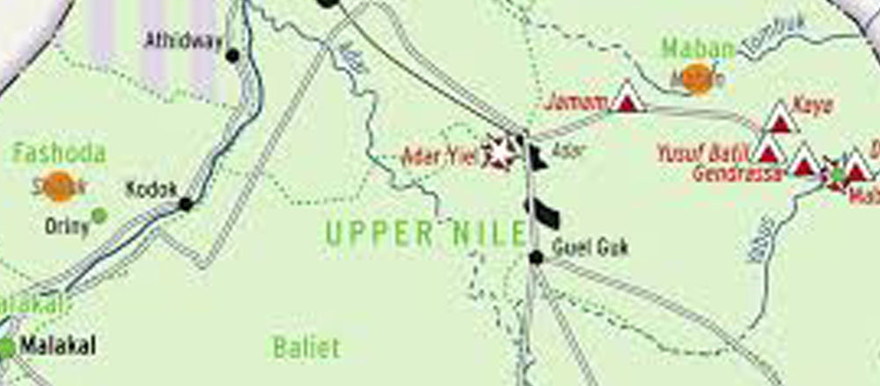The Upper Nile State conference slated for today has been postponed indefinitely due to logistical delays, a letter from the office of the first vice president stated.
Over the weekend, the First Vice President and SPLM/A-IO leader Riek Machar in a press statement said that the Upper Nile State conference declared after the fourth presidency meeting last week would be convened on 16-19th December 2020.
The conference which was to be held under the theme “Peace, reconciliation, healing, and unity among the people of Upper Nile State,’ is aimed at offering a platform for the people of Upper Nile state to dialogue and address their grievances, enhance the process of reconciliation and healing, restore the destroyed social fabric and encourage the return and resettlement of the IDPs and refugees.
According to the statement, the conference is expected to bring together about 500 participants from the country and neighboring Sudan, Ethiopia, Uganda, and, Kenya.
However, journalist and political analyst Atem Simon has criticized the Sudan People’s Liberation Movement in Opposition (SPLM-IO) proposed conference saying it will not achieve much in resolving the political standoff there but is a welcome move to start the discourse over historical injustices.
“The community conference in Upper Nile will not achieve any gain. The conflict in Upper Nile is a political problem in the first place which needs a political decision. If we look at both sides politically and we treat them as politicians from Upper Nile, this will minimize the complexity more rather than looking at them as parties. The issue in Upper Nile is a political problem and it needs to be resolved through the peace deal," according to Simon.
Upper Nile State is the only state without a governor after President Salva Kiir and the SPLM-IO leadership dead-locked over the appointment of General. Johnson Olony. The latter was nominated by the SPM-IO but was rejected by President Salva Kiir who described him as a ‘warmonger’. Simon says the appointment of the governor is just one of the issues that should be resolved. He cited long historical grievances relating to land disputes as an urgent issue.
“There are disputes over the atrocities committed during the last eight years which need serious reconciliation. These issues need serious accountability. Indigenous communities are being pushed out of their original lands, some are currently living in the UN Protection of Civilian (POC) camps, some of their houses have been confiscated. The political elite and traditional leaders are supposed to be involved to help both the government and the opposition to reach a sustainable agreement on the issue,” Atem said.
He added the real concerned groups, the local communities in Upper Nile need to play a great role to regain the historic coexistence among themselves for a better future.
“Their political interest as parties to the peace agreement has reached a deadlock and they want to use this conference to quickly reach a possible solution. Any trial to push the community for a quick solution will create more complexity in the area,” he advised.
Asked how the impasse can be resolved, Atem said Upper Nile political elites and community should come up with a separate initiative from the grassroots to look at all issues that affect the state, “If you focus on who is to be appointed as the governor, then you will open a new front as Dinka, Shilluk or Nuer and this will create a new problem.”
“Let them first address the root causes of the problem, address the issue, the bitterness, future, the guarantors, and address the social peace so they can agree on the appointment of the governor. If they address the root causes of the problem, there will be no problem on who should lead the state. Both the government and the opposition would like to use the communities to quickly resolve the issue of the governor,” he added.
On what is causing the deadlock in Upper Nile State, Atem said, “I think both the government and the opposition would like to maintain their mutual political gains and don’t want to create more confrontation with their allies in Upper Nile. SPLM-IO doesn’t want to begin a new confrontation with Johnson Olony and the government doesn’t want to enter another confrontation with the Padang Dinka group in Upper Nile, which has been its allies since the beginning of the conflict in the area.”




